South Africa is not just known for its breath-taking attractions and iconic landmarks. Its people are just as varied as the country’s culture and natural wonders. From political activists to one of the world’s greatest golfers, these South African icons are proudly flying the flag high.
Nelson Rolihlahla Mandela
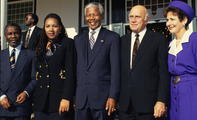
Not many people achieve near-sainthood in their own lifetimes. Some that come to mind are Mother Theresa, Albert Schweitzer, Mahatma Gandhi and Nelson Mandela. The simplest biography would go something like: born into the royal Xhosa Thembu house, boxer, lawyer, activist, co-founder of Umkhonto we Sizwe, political prisoner, first democratically elected president and father of the New South Africa.
But between the lines is the story of a freedom fighter with a vision, willing to sacrifice his life in the pursuit of democracy. The 1993 Nobel Peace Prize (shared with FW de Klerk) tells only part of the story that inspired the world. His greatest pleasure, he says, is watching the sunset to the music of Handel or Tchaikovsky — something he was denied for decades.
Albert John Luthuli
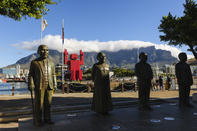
Albert Luthuli was born Mvumbi Luthuli in Bulawayo. He became a teacher in KwaZulu-Natal and at 50 he joined the ANC's leadership. Luthuli was deposed as a Zulu chief when he refused to leave the ANC in 1952. In the same year, he became the ANC’s President-General until his death in 1967.
He was confined to his home at Groutville Mission for most of his later life. Awarded the Nobel Peace Prize in 1960, Luthuli was the first South African to sing Nkosi Sikelel' iAfrika publically (which he did at the end of his acceptance speech (fortunately he was allowed to travel to Oslo to receive it). He was in many respects the role model and political template for the young Nelson Mandela. Luthuli's untimely death, by a sugarcane train, is still shrouded in mystery.
Desmond Tutu
He could have done no more than minister to the spiritual needs of his flock, but he became one of the loudest voices against the injustices of South African politics in the 1970s and 1980s. This put him on a collision course with the state, but he never wavered from his task of championing the poor, the downtrodden and the wronged.
Such was his integrity and commitment to a just political culture that he was appointed to one of the key posts in this country: Head of the Truth and Reconciliation Commission. Since then he has not been shy to speak out against social and political wrongs, irrespective of who commits them. He was awarded the Nobel Peace Prize in 1984.
Gary Player
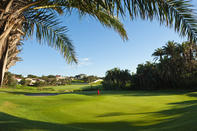
Okay, he's a sportsman, but golf has allowed this great South African to lead a life of strength and purpose. His golfing accomplishments might mark him as the greatest of all time, but the Black Knight has also been awarded honorary doctoral degrees in Law (St Andrews and Dundee) and Science (Ulster) — not bad for a golfer.
Beyond this, he has been a tenacious ambassador for South Africans, irrespective of politics or other classifications. He has also been a great philanthropist and champion of the poor. When he sees someone sweeping streets or picking up litter, he takes time to thank them. In 2000 he was chosen as South Africa's Sportsman of the Century.
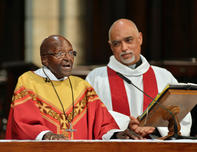
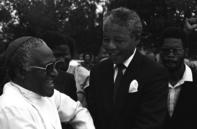
 Desmond Tutu is one of South Africa’s most loved icons and is most known for being a human rights activist and a 1984 Nobel Prize winner. ...
Desmond Tutu is one of South Africa’s most loved icons and is most known for being a human rights activist and a 1984 Nobel Prize winner. ... Nelson Rolihlahla Mandela is a former president of South Africa, the first to be democratically elected after the apartheid system was aboli...
Nelson Rolihlahla Mandela is a former president of South Africa, the first to be democratically elected after the apartheid system was aboli...